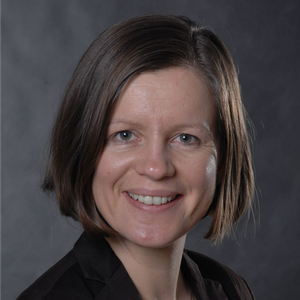Event Details
Overview
This upcoming webinar will discuss the complexities and opportunities of clinical trials with hierarchical composite endpoints, covering topics such as win odds, win ratio, net benefit as well as regulatory considerations when defining hierarchical composite endpoints. We'll start this webinar with a general introduction to hierarchical composite endpoints and an overview of common analysis methods including win ratio, win odds, and net benefit. Then, the practical considerations will be illustrated through case studies from clinical trials in heart failure and chronic kidney disease. We conclude with a discussion and a Q&A. Join us to gain valuable insights and a comprehensive understanding of this topic.
Introduction to composite endpoints and pairwise comparisons - Margaret (Meg) Gamalo (Pfizer)
This talk examines composite endpoints in clinical research, which combine multiple individual outcomes into a single measure to enhance efficiency and capture a more comprehensive assessment of treatment effects. While they offer advantages such as increased statistical power and streamlined data collection, composite endpoints can also introduce challenges related to interpretability and the potential masking of specific treatment effects. To address these disadvantages, win statistics emerge as a promising analytical approach by focusing on the proportion of wins versus losses across the composite outcomes. This framework not only preserves some of the advantages of composite endpoints but also provides an alternative interpretation of clinical trial results.
The Win Ratio Method in Heart Failure Trials: Lessons from EMPULSE - Cordula Zeller (Boehringer-Ingelheim)
In cardiovascular and specifically heart failure trials the win ratio method is discussed and used to combine mortality and morbidity data and evaluations of patient reported outcome data such as the Kansas City Cardiomyopathy Questionnaire (KCCQ).
The EMPULSE trial was conducted in patients with acute heart failure after initial stabilization and used a stratified win ratio as the primary endpoint. This endpoint included death, the number of heart failure events, time to first heart failure event and change from baseline in KCCQ-total symptom (TSS) score at 90 days.
This talk will discuss lessons learnt in terms of technical details such as stratification and multiple imputation as well as lessons learnt in the communication of results.
Gotta Catch 'Em All – How to Capture All That Matters in Chronic Kidney Disease Trials? - Patrick Schloemer (Bayer AG)
Clinical trials in chronic kidney disease (CKD) often utilize composite endpoints comprising clinical events such as onset of dialysis or kidney transplantation along with a sustained large (e.g., ≥57%) decrease in glomerular filtration rate (GFR). Such events typically occur late in the disease course, resulting in large and long trials in which most participants do not contribute events. More recently, the rate of GFR decline over time (i.e. GFR slope) has been suggested as a more efficient endpoint, which is considered particularly useful in early CKD stages as well as patient populations with slower CKD progression.
This talk will present the use of hierarchical composite endpoints (HCEs) in clinical trials of CKD progression, emphasizing the ability to 'capture' all relevant information in a statistically elegant and clinically meaningful way. The application of this kidney HCE will be illustrated by post-hoc analyses of several large CKD trials.
Regulatory advantages and challenges interpretation - Dali Zhou (FDA)
Dali will be a discussant reflecting on the presentations above.
Who is this event intended for? Statisticians with an interest in understanding the challenges and opportunities for hierarchical composite endpoints in drug development.
What is the benefit of attending? Learn about theory and application of hierarchical composite endpoints and their analysis methods (e.g., win ratio, win odds, net benefit) through presentations from statisticians in the industry and a regulatory discussant.
Timings
14:00-16:00 BST | 15:00-17:00 CEST | 09:00-11:00 ET












